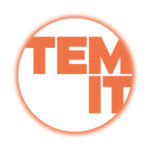General disclaimer and copyright
This report has been commissioned by Templeton Emerging Markets IT and prepared and
issued by Edison, in consideration of a fee payable by Templeton Emerging Markets
IT. Edison Investment Research standard fees are £60,000 pa for the production and broad
dissemination of a detailed note (Outlook) following by regular (typically quarterly)
update notes. Fees are paid upfront in cash without recourse. Edison may seek additional
fees for the provision of roadshows and related IR services for the client but does
not get remunerated for any investment banking services. We never take payment in
stock, options or warrants for any of our services.
Accuracy of content: All information used in the publication of this report has been
compiled from publicly available sources that are believed to be reliable, however
we do not guarantee the accuracy or completeness of this report and have not sought
for this information to be independently verified. Opinions contained in this report
represent those of the research department of Edison at the time of publication. Forward-looking
information or statements in this report contain information that is based on assumptions,
forecasts of future results, estimates of amounts not yet determinable, and therefore
involve known and unknown risks, uncertainties and other factors which may cause the
actual results, performance or achievements of their subject matter to be materially
different from current expectations.
Exclusion of Liability: To the fullest extent allowed by law, Edison shall not be
liable for any direct, indirect or consequential losses, loss of profits, damages,
costs or expenses incurred or suffered by you arising out or in connection with the
access to, use of or reliance on any information contained on this note.
No personalised advice: The information that we provide should not be construed in
any manner whatsoever as, personalised advice. Also, the information provided by us
should not be construed by any subscriber or prospective subscriber as Edison’s solicitation
to effect, or attempt to effect, any transaction in a security. The securities described
in the report may not be eligible for sale in all jurisdictions or to certain categories
of investors.
Investment in securities mentioned: Edison has a restrictive policy relating to personal
dealing and conflicts of interest. Edison Group does not conduct any investment business
and, accordingly, does not itself hold any positions in the securities mentioned in
this report. However, the respective directors, officers, employees and contractors
of Edison may have a position in any or related securities mentioned in this report,
subject to Edison's policies on personal dealing and conflicts of interest.
Copyright 2025 Edison Investment Research Limited (Edison).
Australia
Edison Investment Research Pty Ltd (Edison AU) is the Australian subsidiary of Edison.
Edison AU is a Corporate Authorised Representative (1252501) of Crown Wealth Group
Pty Ltd who holds an Australian Financial Services Licence (Number: 494274). This
research is issued in Australia by Edison AU and any access to it, is intended only
for "wholesale clients" within the meaning of the Corporations Act 2001 of Australia.
Any advice given by Edison AU is general advice only and does not take into account
your personal circumstances, needs or objectives. You should, before acting on this
advice, consider the appropriateness of the advice, having regard to your objectives,
financial situation and needs. If our advice relates to the acquisition, or possible
acquisition, of a particular financial product you should read any relevant Product
Disclosure Statement or like instrument.
New Zealand
The research in this document is intended for New Zealand resident professional financial
advisers or brokers (for use in their roles as financial advisers or brokers) and
habitual investors who are “wholesale clients” for the purpose of the Financial Advisers
Act 2008 (FAA) (as described in sections 5(c) (1)(a), (b) and (c) of the FAA). This
is not a solicitation or inducement to buy, sell, subscribe, or underwrite any securities
mentioned or in the topic of this document. For the purpose of the FAA, the content
of this report is of a general nature, is intended as a source of general information
only and is not intended to constitute a recommendation or opinion in relation to
acquiring or disposing (including refraining from acquiring or disposing) of securities.
The distribution of this document is not a “personalised service” and, to the extent
that it contains any financial advice, is intended only as a “class service” provided
by Edison within the meaning of the FAA (i.e. without taking into account the particular
financial situation or goals of any person). As such, it should not be relied upon
in making an investment decision.
United Kingdom
This document is prepared and provided by Edison for information purposes only and
should not be construed as an offer or sol icitation for investment in any securities
mentioned or in the topic of this document. A marketing communication under FCA Rules,
this document has not been prepared in accordance with the legal requirements designed
to promote the independence of investment research and is not subject to any prohibition
on dealing ahead of the dissemination of investment research.
This Communication is being distributed in the United Kingdom and is directed only
at (i) persons having professional experience in matters relating to investments,
i.e. investment professionals within the meaning of Article 19(5) of the Financial
Services and Markets Act 2000 (Financial Promotion) Order 2005, as amended (the "FPO")
(ii) high net-worth companies, unincorporated associations or other bodies within
the meaning of Article 49 of the FPO and (iii) persons to whom it is otherwise lawful
to distribute it. The investment or investment activity to which this document relates
is available only to such persons. It is not intended that this document be distributed
or passed on, directly or indirectly, to any other class of persons and in any event
and under no circumstances should persons of any other description rely on or act
upon the contents of this document.
This Communication is being supplied to you solely for your information and may not
be reproduced by, further distributed to or published in whole or in part by, any
other person.
United States
Edison relies upon the "publishers' exclusion" from the definition of investment adviser
under Section 202(a)(11) of the Investment Advisers Act of 1940 and corresponding
state securities laws. This report is a bona fide publication of general and regular
circulation offering impersonal investment-related advice, not tailored to a specific
investment portfolio or the needs of current and/or prospective subscribers. As such,
Edison does not offer or provide personal advice and the research provided is for
informational purposes only. No mention of a particular security in this report constitutes
a recommendation to buy, sell or hold that or any security, or that any particular
security, portfolio of securities, transaction or investment strategy is suitable
for any specific person.
London │ New York │ Frankfurt
20 Red Lion Street
London, WC1R 4PS
United Kingdom



































